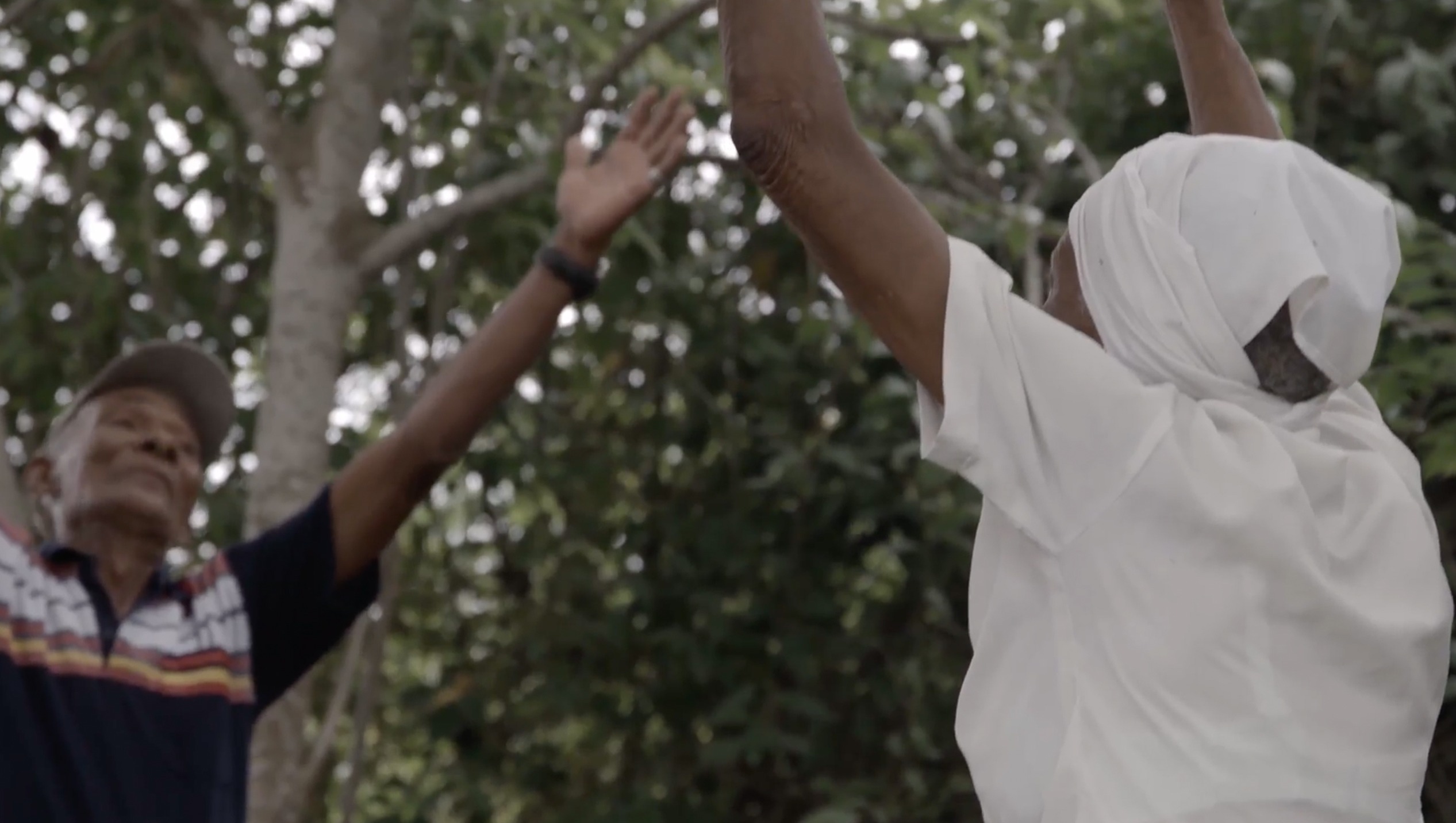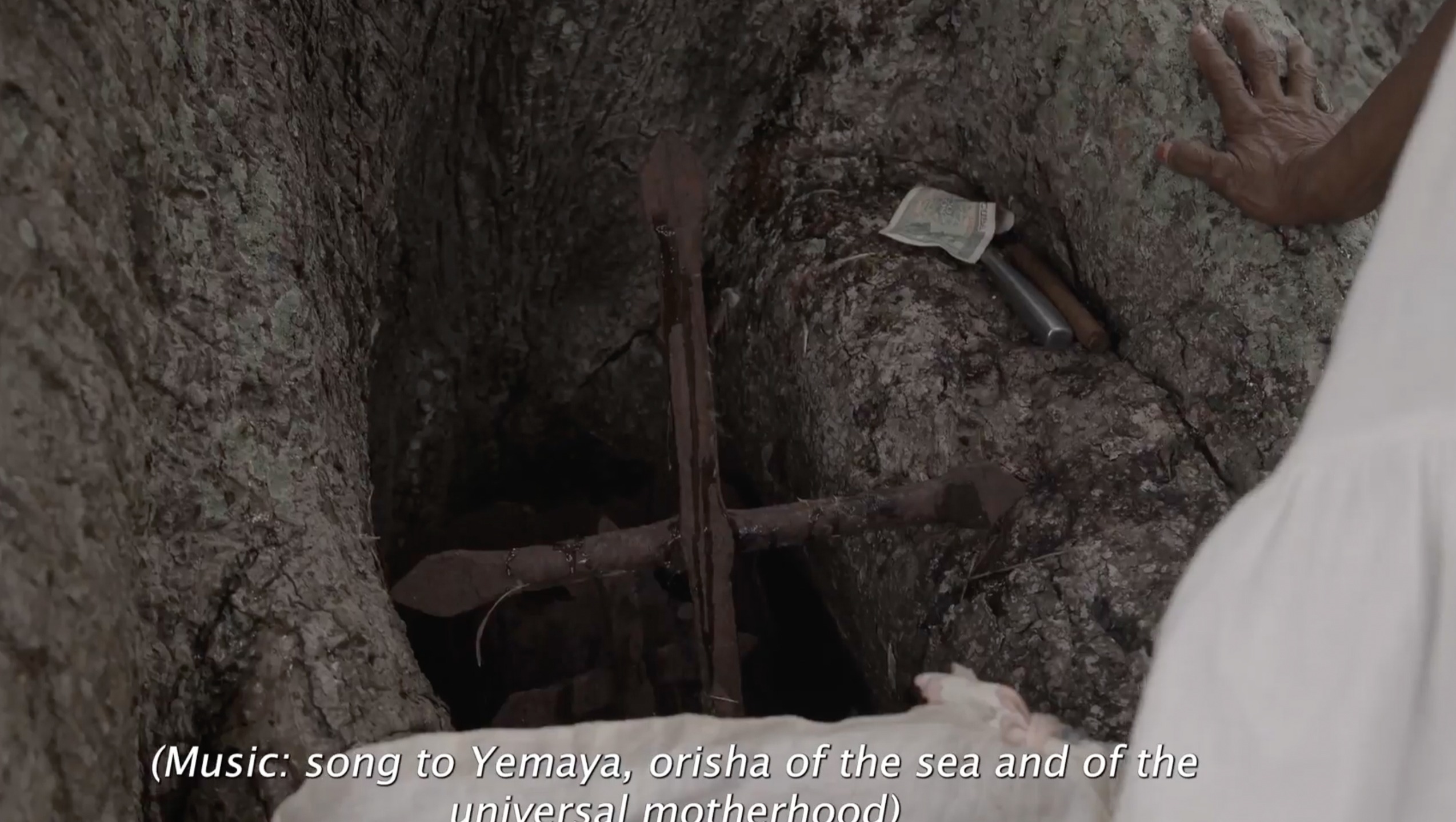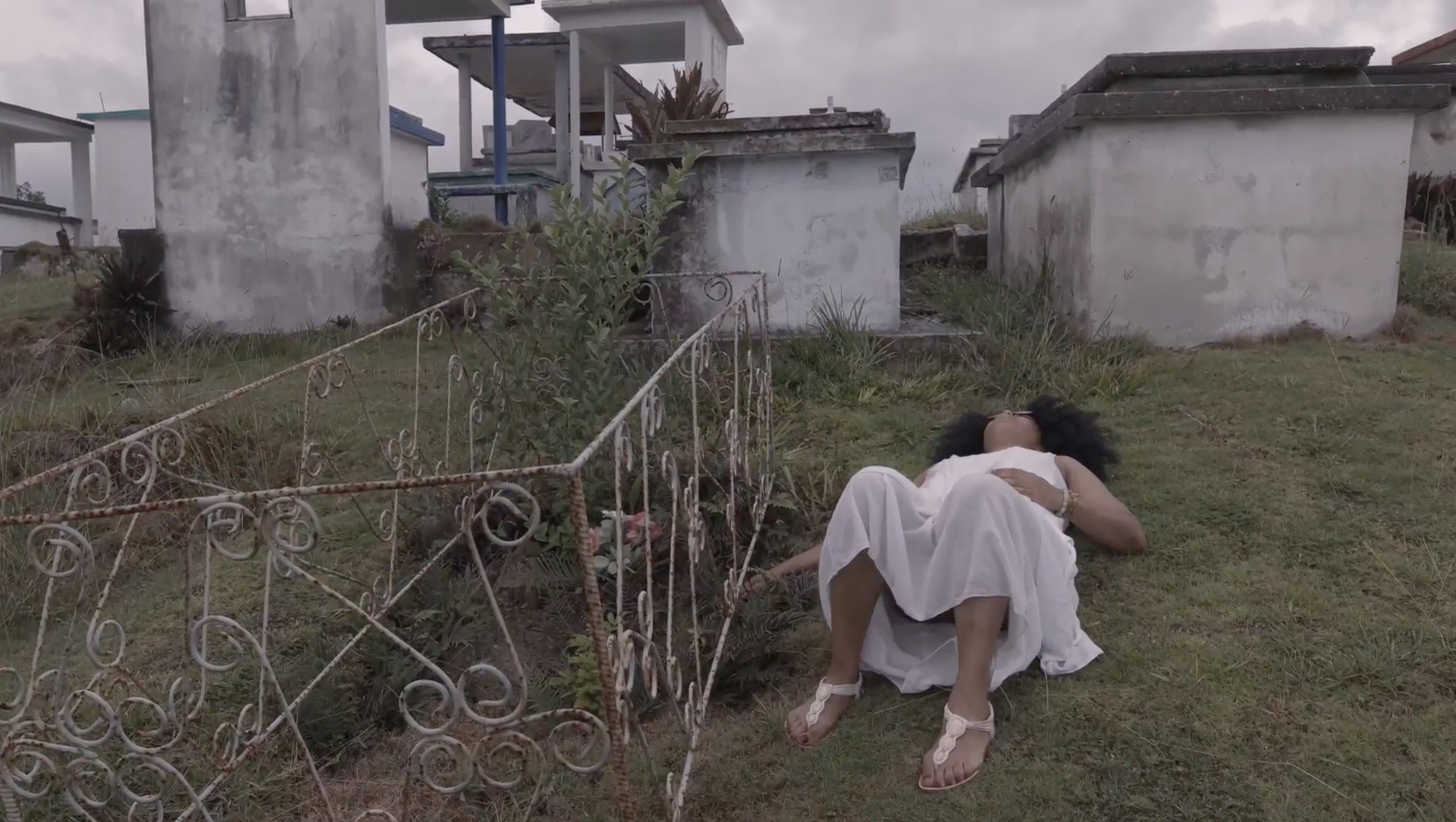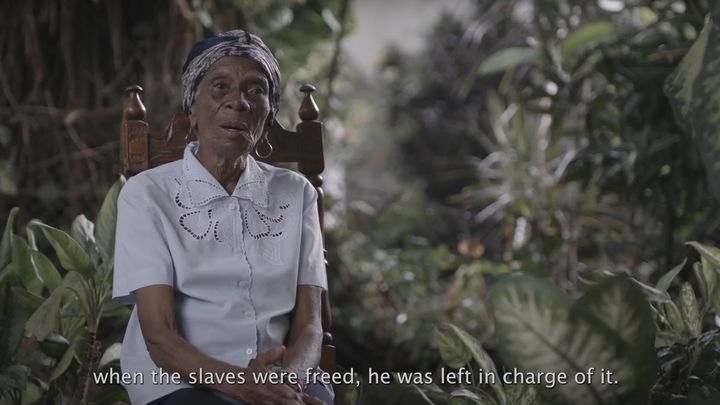Donation protected
IROKO narrates the encounter of several generations of a rural Afro-Cuban family at the foot of a Ceiba. The tree grows over the relics of the Yoruba enslaved from the Villa Nera plantation, considered for them a living temple. The Selier family, guardians of the site for three generations, pilgrimage to the site annually, attending and celebrating the spirit of the ancestors.

After a decade collecting stories of Afro Cuban rural women, the artist and scholar Yesenia Selier returned to Cuba. Besides supporting her ailing father she assembled a crew to document a rite secretly kept by her family for more than a century. Cosmic Exu, the character most recently performed by her at The Armory Park Avenue, goes with her. As a postmodern version of the Yoruba deity who opens the roads and police the universe, Cosmic Exu shapes the aesthetic of the film. He guides Yesenia to her aunt Olga Selier, the eighty-seven-year-old family matriarch, the religious authority who can lead the annual pilgrimage to the Ceiba de los Lukumies, a tree consecrated by the Yoruba enslaves of the Villa Nera Plantation. The journey, however, will reveal surprising details about regional and local history and even more about the complex relationship between race, history and memory of the invisible black peasants. The pilgrimage, May 31, 2022, coincides with the trial of Afro-Cuban artists Luis Manuel Otero Alcantara and Maykel Castillo, of the San Isidro Movement, who frequently use the Cuban flag in their public interventions. In their honor, Exu offers to the ceiba a Cuban flag, as a prayer for Cuba and the life of the artists, finally sentenced to 5 and 9 years in prison.

Olga Selier was trained to guard the Ceiba by the family patriarch Gerardo Larrinaga. He was brought from Yorubaland (Nigeria) and sold as a slave to the owner of the sugar mill Villa Nera (Cuba). After the abolition of slavery, the former enslaved Yoruba chose him and his descendants as guardians of their sacred site. For them, the tree was a deity, and gathered under her, playing, singing, and remembering their nation. It is said the tree grows over Yoruba religious relics. In the area, there are other, smaller, consecrated trees in memory of important leaders like the mythical Ma Juana. He joined the forces of Afro Cuban general Antonio Maceo during the Cuban Independence War from Spain in 1895. He received the deed of the lands of the sacred site as a reward for his participation in the war. In the same lands in which he was enslaved, Larrinaga prospered until 1959. The Revolution, leadered by Fidel Castro, confiscated the property, now owned but abandoned, by the Cuban state. The family sneaks in, jumping over fences to care for the sacred site for the last sixty-four years.

Cinematic or investigative approaches to religion have focused extensively on urban practices. These representations and spaces are dominantly patriarchal. Iyamile extols female religious leadership in rural spaces. The site's preservation, in a unique way, has allowed the conservation of cultural heritage, legends, and local mythology with a diasporic projection. Diaspora scholars have also noted how difficult it is to preserve the genealogies of Afro-descendants, who are often illiterate and scarcely reflected in traditional archives. In this film, the history of people considered "without history" is rescued by creating an experimental cultural research methodology.
The economic and political conditions of Cuba in recent years add historical value to this production, initiated with scarce resources by a member of the family that stars in the film. In this way, the distance generated by a film production disappears, as they are the bearers of the tradition, transmitting the legacy to the descendants.
There's significant environmental importance to this film as well, as it seeks to preserve not only the cultural heritage and historical significance of the Lukumies' sacred site but also the natural environment surrounding it. By acquiring the land on which the site is located, the project aims to safeguard the surrounding ecosystems and promote sustainable practices. This endeavor recognizes the interconnectedness between cultural preservation and environmental conservation, acknowledging that the protection of sacred sites often goes hand in hand with the preservation of the natural landscapes they inhabit. Additionally, establishing an international fund for the preservation of the site ensures ongoing support for its environmental sustainability, allowing future generations to appreciate the rich cultural and ecological significance of this unique location. By emphasizing the environmental aspects of the project, IROKO highlights the importance of holistic conservation efforts that encompass both cultural and natural heritage.
Co-organizers (2)
Yesenia Fernandez
Organizer
West New York, NJ
Natalie Romero
Co-organizer
